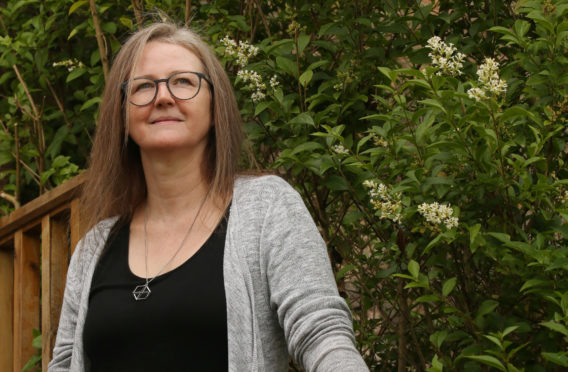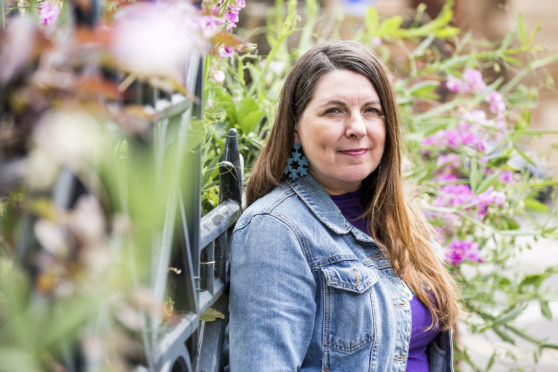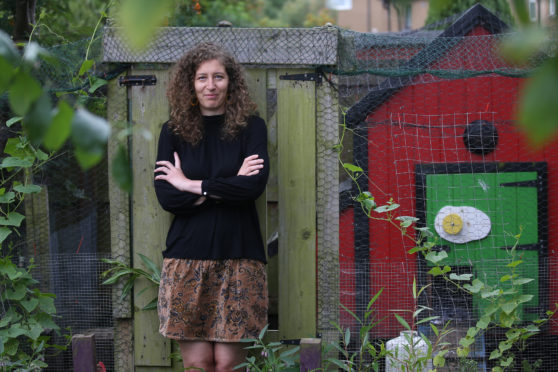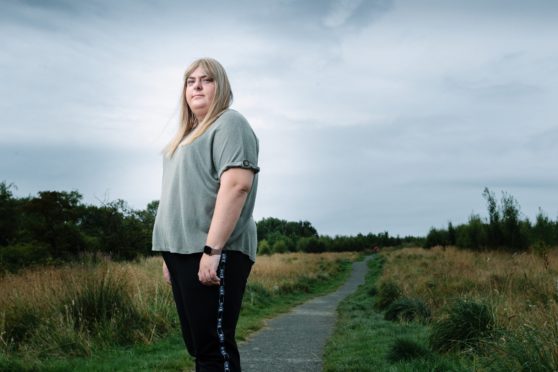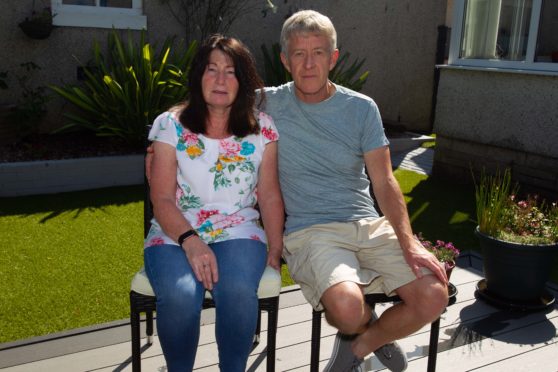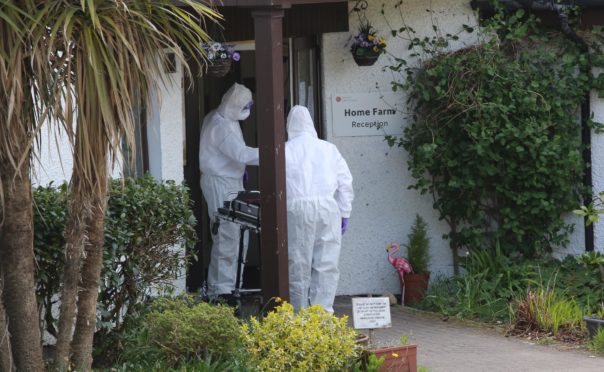
Dozens of patients who had tested positive for Covid-19 were transferred from hospitals into care homes in the critical weeks around lockdown, we can reveal today.
The transfers, sanctioned as the NHS cleared beds for an expected onslaught of patients, were compared to “putting a match to tinder” yesterday after the virus swept through Scots care homes claiming the lives of at least 1,950 residents.
The revelations come after mounting concern about the Scottish Government’s decision to allow hundreds of untested patients to be moved into homes, but, according to figures obtained by The Post, the transfers included many who had been confirmed as having Covid.
Some health boards chose not to transfer infectious patients into homes in the weeks immediately before and after lockdown was imposed in March, but at least five did. The transfer of almost 40 infectious patients has been confirmed so far.
Experts branded the transfers reckless yesterday, saying care homes did not have the staff, equipment or specialist training to cope with Covid cases during the rush to clear hospital beds in March and April.
Allyson Pollock, professor of public health at Newcastle University, said: “It is quite shocking that some health boards discharged patients to care homes who had tested positive for Covid-19.
“It’s like putting a lit match to dry tinder and starting a forest fire because we know that infection control measures weren’t good in care homes, we know care homes were understaffed and we know that older people are very vulnerable to Covid-19.
“Some of these hospitals were just desperate to get rid of bed-blocking patients to clear beds.”
The Scottish Government has confirmed 1,431 untested patients were moved to care homes between March 1 and April 21, before testing of discharged patients became mandatory.
However, we can reveal, at least 300 patients were tested in that same period prior to discharge to care homes with at least 37 testing positive. The positive cases, uncovered so far, were in Ayrshire and Arran (17), Grampian (7), Tayside (6), Fife (4) and Lanarkshire (3).
NHS Lothian and NHS Highland did not respond to our requests under freedom of information legislation. Shetland, Orkney, Western Isles, Forth Valley and Dumfries and Galloway health boards said they did not discharge any patients who had tested positive. NHS Borders said two patients were transferred three weeks after a positive test so were no longer infectious.
NHS Greater Glasgow and Clyde said it discharged 752 patients but it would be too expensive to check records to find out how many were tested and how many tested positive.
There have been 1,950 deaths in Scots care homes where Covid-19 was mentioned on the death certificate. Some care homes had local outbreaks that cost the lives of more than 20 residents.
In June The Post told how prosecutors were probing hundreds of Covid deaths in what is likely be Scotland’s biggest Crown Office inquiry.
Some care home bosses believe the virus was brought in by patients discharged from hospital at the beginning of the pandemic when there was a rush to clear beds. All health boards will be expected to provide the information in the weeks ahead, however, as the inquiry into care home deaths continues and before an expected public inquiry examines one of the most criticised decisions of the Scottish and Westminster governments.
Critics have accused ministers of “throwing care homes to the wolves” as they moved to protect the capability of the NHS to deal with Covid patients.
Rodney Laing’s dad Rodger died from Covid at Drummond Grange Care Home in Lasswade, near Edinburgh. He was transferred from Midlothian Community Hospital after a negative test result.
Mr Laing said: “My dad was fit and healthy when he was moved but if he had Covid I would have been really disappointed if they’d sent him to a care home. It would be like putting a time bomb into a care home and waiting for it to go off.”
There is no suggestion the Covid-19 outbreak at Drummond Grange was caused by the admission of a bed-blocking hospital patient with the virus but operator Barchester Healthcare confirmed the firm’s care homes did accept untested hospital patients in March and April.
Professor David Bell of Stirling University, who published a paper about Covid-19 deaths in Scottish care homes, said: “Establishing the linkage from hospital discharges to care homes where there was a subsequent Covid-19 outbreak is vitally important. Although they house less than 1% of its population, almost half of all Covid deaths happened in Scotland’s care homes.
“There will inevitably be an inquiry into how this came about. Perhaps protecting the NHS had the unintended consequence of exposing care homes to the deadly virus. The inquiry will have to find out how many of those transferred to care homes were tested for Covid and what decisions were made on the basis of these tests.”
A senior doctor yesterday explained the thinking behind the decision to transfer patients into care as Covid neared Britain.
Dr David Chung, head of the Royal College for Emergency Medicine in Scotland, said: “People had to make difficult decisions which, in hindsight, would have been done in a different way. We were looking at what was happening in Italy and we were treating this is a slow-motion major incident. In a major incident the thing you do is you create capacity and that’s what we were attempting to do, in good faith.”
He added: “If we knew somebody had Covid there are situations where we think this person might not survive, they’ve got severe dementia, it’s kinder for them to be in an environment they know, and [care home] staff should be able to treat them and keep them isolated.”
Dr Crawford McGuffie, medical director at NHS Ayrshire and Arran, said clinical teams completed a risk assessment with care homes before discharge and made clear the importance of ensuring 14 days of isolation and “robust infection prevention and control measures”. He added: “NHS Ayrshire and Arran has followed the national guidance on testing, including testing for patients who had finished their acute care and were ready for discharge to a care home.”
NHS Tayside said: “Patients who tested positive were discharged following a clinical assessment and in liaison with each care home. Hospital doctors believed the most appropriate care environment for these patients would be within their own care home with all appropriate infection-control measures taken. These decisions were made before national guidance was agreed that patients should have a negative swab test before being discharged to care homes.”
Scottish Conservative health spokesman Donald Cameron said: “It is astonishing we are only finding this out now after a newspaper investigation into the truth of what has happened in our care homes. It appears that all the calls for transparency have been completely unheeded by the government when informing people about what was happening in relation to their loved ones.
“There are serious questions for the ministers and health boards to answer.”
Dr Donald Macaskill, chief executive of Scottish Care, which represents 800 of Scotland’s 1,000 care homes, said anecdotal evidence suggested hospitals had not always been clear about whether patients being transferred had or had not been tested or if the results had been positive or negative. He said: “It is now clear there were individuals discharged from hospitals and into care homes who were Covid positive.
“There would appear to be instances where these care homes did not know, or were not told, that somebody was positive when they were discharged.
“We have heard anecdotally from care homes that they were told somebody hadn’t been tested but thereafter it was discovered they had been tested. That was a withholding of information that may or may not have adjusted that care home’s view as to whether or not to take somebody. It is possible that if a care home previously did not have Covid, and was not told the discharged patient had Covid, then that patient would have introduced Covid to a care home.”
Dr Macaskill added: “At frequent points both the First Minister and the Cabinet Secretary for Health have stated there will be a public inquiry. The First Minister has further stated it would be human rights based, which is what we have called for, but we have had no indication when that will be.”
The Scottish Government said: “Our priority throughout the pandemic has been to save lives. Discharge decisions for individual patients are made by clinicians based on the patient’s needs. If somebody is discharged to a care home it is because that has been assessed as the best place to meet their needs. No evidence of any kind has been given to the government that would substantiate the serious accusation that any clinicians withheld test results and it is not acceptable if full information was not passed on.
“We have taken firm action to protect care home staff and residents. There has never been guidance or policy to actively move patients unwell with Covid-19 into care homes. Guidance has been clear that any individual being placed in a care home must be subject to an appropriate risk assessment and be isolated for 14 days. This is to make explicit that steps should be taken to ensure patients are screened clinically so people at risk were not transferred inappropriately.
“All our policy decisions were based on the best clinical advice available at that time. As we learned more about the impact of the virus, we ensured all guidance and decisions followed that changing landscape.”
Knowingly discharging patients after a positive test does not seem right or safe in any way
By Brian Sloan, chief executive of Age Scotland
It was quickly clear that care homes and the social care sector would be on the front line of the fight against Covid-19 but the national recognition of their vital role took much longer.
Calls for testing, PPE supply and access to medical treatment from those tasked with caring for residents have been deafening but the official response was sluggish.
A particular area of concern was the rush and determination to discharge older patients from hospital into a care home setting. The pace of this was like nothing we have ever seen before and done to free up beds in anticipation of an overwhelming wave of new coronavirus patients.
But in the rush, was there an injection of Covid into care homes? Of those discharged, the vast majority were never tested for the virus at all. That is hard enough to defend but the figures revealed today clearly show that there are a sizeable number who were positive for the virus but still transferred.
Knowingly discharging patients following a positive test does not seem right or safe in any way. It should not take a specialist to predict the consequences of sending someone with a highly infectious virus into a care home with dozens of older, frail residents. In many cases, staff were clearly ill-equipped to contain the virus and stop it spreading like wildfire, despite their heroic efforts. Were care homes aware that new residents had tested positive so they could care for them appropriately and take additional precautions?
Were checks carried out to ensure that the homes were able to adequately control the infection and protect other residents?
A full and thorough investigation into this scandal must answer these questions. We owe it to the families and loved ones of each resident who lost their lives and to ensure that others do not.

Enjoy the convenience of having The Sunday Post delivered as a digital ePaper straight to your smartphone, tablet or computer.
Subscribe for only £5.49 a month and enjoy all the benefits of the printed paper as a digital replica.
Subscribe

